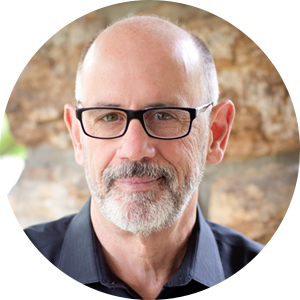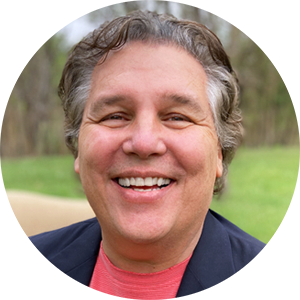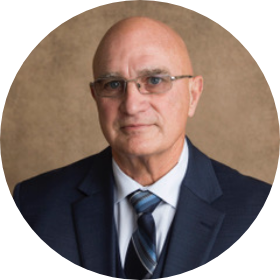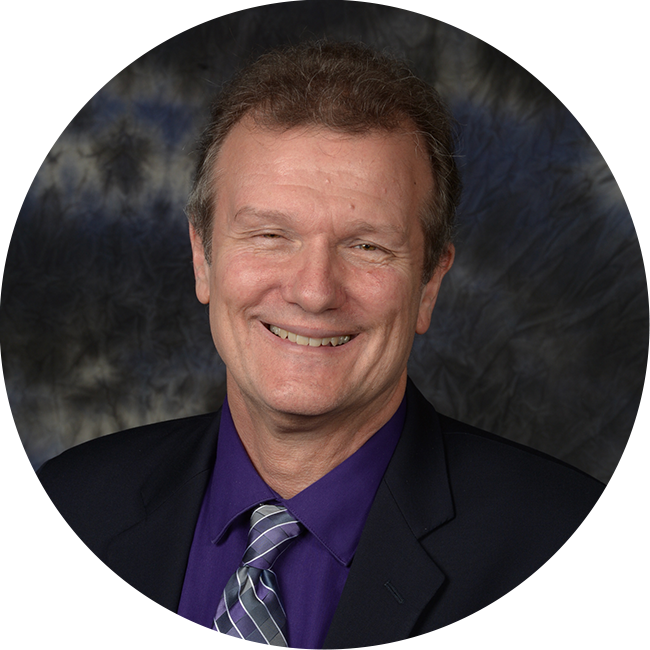
From Broken to Blended: Building Strong Families
by Timothy Smith, MA on October 2nd, 2023
It took just 18 days from the time my wife told me she wanted to date other men to the day she walked out of the family. On that first day, I had no idea this would become the defining adventure of my life. I was suddenly a single dad in the early ’90s and raising three young children. Even now, I can recall every moment of that day. How would I tell my children that their mother would no longer live with us? As a ministry leader, how would I muster explaining to my board and leadership what had happened? How would they respond—and how would I battle the stigma of being divorced in a Christian ministry culture?
Some 100 million Americans have a step-relationship, and yet churches broadly do a poor job of ministering to or supporting blended families. I would quickly discover in my own journey that the churches often stopped at “recovery” for those in the midst of divorce. There was little or no guidance for remarriage, when the time came, or parenting in a blended family. And that was in the 1990s. Today, the statistics reveal most of our congregants are touched by divorce, remarriage, and step-relationships—if not in their own immediate family, certainly in their extended family networks.
The U.S. Bureau of Census states that nearly 1,300 new stepfamilies are formed each day. The average marriage in America lasts seven years. One of every two marriages ends in divorce, and more than 50 percent of U.S. families are remarried or re-coupled. More than half of the 60 million children under age 13 currently live with one biological parent and that parent’s current partner (from www.stepfamily.org). According to the Stepfamily Foundation’s research, more than 60 percent of divorced fathers visit their children because they do not legally “reside” with their fathers. So, neither government nor academic research includes these fathers and their children as stepfamilies! The father may be a single dad, but most likely he is re-coupled or remarried, thus creating a stepfamily. These children shuttle between their parents’ homes, radically increasing the numbers of stepfamilies, leaving fathers ignored and uncounted. Two-thirds of stepfamilies complain of “not having access to resources as a stepfamily,” according to a recent Stepfamily Foundation survey of 2,000 web questionnaire respondents.
So, how can the Church come alongside blended families? A place to start is by reframing our language and mindset. We often refer to a “broken” family, but we should challenge ourselves to help people move away from a mindset that their family is broken. Rather, we should strive toward the idea of a blended family that can be vibrant, healthy, and full of love and life.
Churches often tell an incomplete story when it comes to the blended family, and worse, typically fail to offer resources or opportunities for connection beyond divorce recovery. Evaluate your church’s ministries and programs through the lens of how many speak to and minister to those families. Churches have a role in helping parents blend all the diverse personalities of the newly formed family. How do you lead a family which now involves influences and modeling different from your own?
As coaches, mentors, small group leaders, pastors, and lay leaders, there are some key principles and practical tools on this journey of coming alongside blended families:
- There is typically a time of great pain and trauma before the new blended family was formed. In most cases, this pain has never truly been dealt with and sorted.
- A big step forward in blended families is to help family members park the pain struggles of the past. Otherwise, these painful memories and bad habits often move forward into the new relationships.
- There are memories from the day the original family fractured that will stay with family members.
- Later, children may act out due to memories and experiences that trace back to the day their lives were disrupted.
- There are “triggers” which will take family members back to these painful times and memories.
- It might be a meal, a trip, or a movie. Many things can trigger a person to go back to past pain.
- Sometimes this trigger causes a person to revisit their failures or disappointment as though it is very present.
- Many face a (perceived or real) “stigma” of divorce, remarriage, and blended families inside their church.
- Recognize how the very institution many families have turned to has failed them in finding a place of belonging.
- The mere statistics of this growing demographic is a call to our churches to equip leaders and coaches to mentor people in blended families.
- Recognize the people we are mentoring have not had access to church resources like the traditional family does.
- How can we meet these families at their point of need and offer real solutions?
It is my prayer and strong belief that church and ministry leaders can set a course of change for blended families and provide a much-needed playbook for those seeking to help this amazing family system. In fact, the future health of the larger body of Christ is tied to it. We hope you will be inspired to look at how you serve these families in a new way—moving from broken to blended and strong.

Tim Smith, MA, has over 35 years of experience with nonprofit organizations in administration, management, and fund development. He has also served as a Development Officer in nonprofit organizations and Executive Pastor for two megachurches. Tim recently served as Chief Development Officer for the Museum of the Bible and is the Founder and President of NonProfit DNA, a development and consulting agency. He is married to Olivia, and they share a total of six children. Tim is the author of Donors Are People Too: Managing Relationships with Your Ministry’s Major Contributors, a book on the art of personal relationship with donors, and What Have I Gotten Myself Into, released in 2019. See more at: www.blendednotbroken.org

ABCs of Transformation Series: Freedom—The Impact of Grace
by Rolfe Carawan, MEd and Lea Carawan, MA on September 11th, 2023
As a life coach, I am asked to help people get unstuck. Throughout the process it is quite common to help people examine their thoughts or beliefs so they can walk in freedom and success. One of the common beliefs that frequently creates a roadblock to their desired change is the belief that we can always transform ourselves by simply applying the correct methods or strategies.
There is nothing wrong with methods or strategies—in fact, the ABCs of Transformation and E.A.S.E Model we offer have been incredibly effective in helping people implement what they are learning. What has become abundantly clear, as followers of Jesus, is that if we trust ANYTHING other than the grace, power, and love of Christ for our transformation, we will fail.
Obedience in the transformation process places us in alignment with God and His created order. However, the ONLY thing that will cause our efforts to even approach the possibility of working is God’s grace flowing through us! Everything begins and ends with the grace of God extended to His creation. Grace provides the power and the environment conducive for transformation.
Ephesians 2:4–7 says,“But God, being rich in mercy, because of the great love with which he loved us, even when we were dead in our trespasses, made us alive together with Christ—by grace you have been saved—and raised us up with him and seated us with him in the heavenly places in Christ Jesus, so that in the coming ages he might show the immeasurable riches of his grace in kindness toward us in Christ Jesus” (Ephesians 2:4–7 ESV).
I had heard it said and repeated it frequently, “I am a sinner saved by grace.” The problem was that became my identity. I was a sinner that sometimes acted like a saint. Even though I was saved by grace, my identity caused me to hide and be distrusting. Knowing my real self, the person I was deep down and the things I struggled with that were clearly not “Christian,” I was convinced if someone knew that person, the real me, they would reject me.
Then in 2006, I was sharing at a men’s retreat and made the comment as I often did that I was “just a sinner saved by grace.” When I finished, a brother came up to me and said, “Rolfe, there is one thing you shared today that simply isn’t true.” Well as you can imagine, my ears perked up. “You said you were a sinner saved by grace, but the Bible says that you are a saint, and not a sinner.”
Now, I had heard this numerous times and had dismissed it as being just semantics. Surely it just meant the word “saint” was the name that was used to make a distinction between sinners who had rejected Jesus and sinners who had accepted Jesus. Yet, they were still sinners, right?
I thanked him politely even though I was thinking he was just some Christian nerd and part-time theologian who wanted to ensure that everything was said “just so.” But to his credit, he said, “I can see you are not convinced about what I just shared, so listen to this teaching called ‘True Faced’ by John Lynch—it changed my life.”
I listened to the teaching on the way home. Halfway through Lynch’s presentation, I had to pull the car over because I was crying so hard I couldn’t see the road. The Holy Spirit was using this man to introduce me to a God of Grace, who has done everything for me. This God not only took my punishment so I could spend eternity with Him, but this God had made up His mind that I would be holy, even before He spoke the first word of creation. Ephesians tells us, “Even as he chose us in him before the foundation of the world, that we should be holy and blameless before him. In love he predestined us for adoption to himself as sons through Jesus Christ, according to the purpose of his will” (Ephesians 1:4–5 ESV).
I finally understood what it meant when people pointed out that Jesus didn’t die to make bad men good or good men better, but rather He came to make dead people alive! I was dead but received life as a new creation, a brand-new species: “Therefore, if anyone is in Christ, he is a new creation. The old has passed away; behold, the new has come” (2 Corinthians 5:17 ESV).
As we conclude this five-part series on the ABCs of Transformation, we end with the key to all transformation—our confidence that God will provide His truth, power, and most especially, grace, to help us mature into who God says we already are.
John Lynch, in his book The Cure, provided a powerful illustration of what it means to mature into who God says we already are: “Nature provides many examples of this incredible discrepancy between who we appear to be and who we truly are. Consider the caterpillar. If we brought a caterpillar to a biologist and asked him to analyze it and describe its DNA, he would tell us, ‘I know this looks like a caterpillar to you. But scientifically, according to every test, including DNA, this is fully and completely a butterfly.’”
God has wired into a creature looking nothing like a butterfly a perfectly complete butterfly identity. And because the caterpillar is a butterfly in essence, it will one day display the behavior and attributes of a butterfly. So it is with us. God has already spoken who we are in Christ; now we walk through the process of allowing His grace to transform us. As we lean into the identity we were already given, God’s work will be brought to completion.
So, as you help your clients apply the ABCs of Transformation and the E.A.S.E model to their lives, I pray you are reminded of the One whose grace is truly doing the work.

Rolfe Carawan, MEd, is the President of LifeMatters Ministries, which focuses on discipleship, biblical principles, and tackling relevant issues of our times, and is also the Co-Founder of Carawan Global Group. Inspired by his passion to relieve suffering and release potential, Rolfe brings his real-world experience and strategies to individuals in every walk of life. Known for his contagious enthusiasm, his coaching draws out the best in people, igniting a renewal of energy, engagement, and productivity, as well as successfully transitioning people through change, transforming human behavior, strengthening relationships, and overcoming generational gaps. His winning strategies have been developed over 30 years of successfully coaching, training, and motivating people. Speaking to organizations ranging from Fortune 500 and high-tech companies to healthcare and nonprofits, Rolfe has spoken to nearly a million people throughout America, as well as audiences on four continents. He is an author (Profiles in Character and Character Revolution), successful teacher, coach, trained counselor, and uses experiential learning methods to create healthier relationships at home and work, effectively implement change, and strengthen communication. Rolfe has worked and volunteered his services in a number of countries including Brazil, Ghana, Israel, Ukraine, Russia, Canada, and Mexico. He currently on the Board of Reference for the International Christian Coaches Institute (ICCI) and is a Certified Transformed Living Coach Trainer™. See more at www.transformedliving.org

Lea Carawan, MA, is the founder of Transformed Living, a ministry that provides Bible-based resources and services designed to make disciples who love God, walk in freedom, and build life-giving relationships at home, work, and play. She and her husband, Rolfe, built a successful speaking, coaching, and consulting firm serving organizations ranging from Fortune 500 and high-tech companies to healthcare and nonprofits. For nearly 20 years, they helped leaders implement winning strategies that brought out the best in people. Lea was the cofounder and served as the Executive Director for the Congressional Prayer Caucus Foundation. For over a decade, she led the effort to equip and mobilize the largest network of federal and state elected leaders—nearly 100 sitting members of Congress and 900 state legislators—who are committed to standing for faith and implementing proactive strategies to advance religious freedom, prayer, and America’s Judeo-Christian heritage. She is a speaker, consultant, ordained minister, and multi-certified life, relationship, and spiritual formation coach and trainer. With a career spanning three decades, Lea has transitioned seamlessly between entrepreneurship, fashion, consulting, ministry, and motherhood. Lea has been a frequent speaker at women’s meetings, conferences, and marriage retreats around the world, including countries such as Brazil, Ukraine, and the United Arab Emirates. Lea is currently on the Board of Reference for the International Christian Coaching Institute (ICCI) and a Certified Transformed Living Coach Trainer. See more at: www.transformedliving.org

The Habit of Giving Thanks: Consistent Gratitude
by William A. Brown on August 28th, 2023
The verse goes, “This is the day that the Lord has made; let us complain and be mad in it.” Oh! Wait! My bad. Psalm 118 says, “This is the day that the LORD has made,” so let us give thanks and be glad in it (Psalm 118:24 ESV).
How often it is that we blow right over that statement! If we think about it at all, we tend to reflect, and then say, “But what about this? But what about that?” Or, “If they only knew…” Or, “But my story is different.” Is it possible that, as a habit, we have trained ourselves to think in a dour way? Have we allowed our own culture to push us down so heavily we are nearly broken under the strain? Are we convinced the shoe is ultimately going to drop—actually inviting trouble? Do we passively give ourselves permission to allow the bombardment of sarcasm (defined in Greek as the tearing of flesh or gnashing of teeth), and consider it humor? Do we tolerate or involve ourselves in snarky comments? Do we casually listen to our leaders and the pundits as they continue to attack one another with labels, libels, and mean-spirited liberties?
I am afraid the answer to these questions might be yes. Sometimes we feel we can’t escape it. And, as a result, we find ourselves immersed in our own darkness, feeling the heaviness that only a darkened spirit and anger can provide. Allow me to suggest a habit of relief. Declare grateful statements! Yes, out loud! Zoom out in your thinking; look at the bigger picture; turn down the hash trash; give yourself permission to declare something upbeat—no matter how profound or mundane. Then, do it again (e.g., I love my children! I’m glad for the air in my tires!). Look around and find things. I have cultivated this habit for over five years, and it has helped me a great deal, even in troublesome times—maybe especially in troublesome times. It isn’t Pollyanna stuff. It’s intentional.
Surprise yourself. Feel the feeling of freedom for that one moment of escape from an entangled and critical world. Give yourself the power of rejoicing (Philippians 4:4). Make it a habit. Every morning, declare three “gratitudes” and try your best not to repeat them in the days that follow. Soon, you will begin to develop a mindset that begins to override the junk that flows into the day. You will become stronger and more powerful in your daily walk! After a while (40 days and 40 nights), you won’t even notice that you have a default positive mindset that radiates out to others all day long—a wonderful habit and ministry. Go ahead. Start today!
After all, this is the day that the LORD has made! We didn’t make it. We just get to be part of it! May we always remember that. Until next time, also remember: There is always, always, always something to be grateful for.

William Brown, MEd, MSpEd, was born and raised in rural Nebraska. He majored in education at Doane College and played varsity football. He earned his master’s in education administration while teaching elementary students, and later earned an additional master’s degree to work with behaviorally challenged students. For 25 years, he worked in Property/Casualty and Risk Management Insurance. In his “retirement,” William focuses on health and life coaching, including 12-step programs, and has grown his business from helping local pastors to a variety of clients locally and across the country via Zoom and FaceTime. He and his wife, Beverly Ann, have been married for 22 years and share a blended family of five adult children and six wonderful grandchildren. He loves running, golf, working with the local volunteer Fire Department, reading, writing, facilitating adult Sunday School classes, and playing games with his family. See more at: www.williambrownlifecoach.com

ABCs of Transformation Series: Freedom—Commitment to Change
by Rolfe Carawan, MEd and Lea Carawan, MA on June 12th, 2023
For years, I (Lea) tried to be a better person and stop sinning. Though I genuinely wanted to change, I couldn’t do it by just trying harder and committing to doing better. Maybe this is your story, too. If the change we want involves short-term sacrifices for long-term payoffs, it will inevitably involve suffering and sacrifice. Because of that, we often “lose heart” and find it difficult to endure to the end. To compound this, many of us don’t believe suffering can be a good thing, and we go so far to say that suffering is not good, and a good God would not require it of us.
Jesus models the powerful role of suffering as described in Hebrews 5, “In the days of his flesh, Jesus offered up prayers and supplications, with loud cries and tears, to him who was able to save him from death, and he was heard because of his reverence. Although he was a son, he learned obedience through what he suffered. And being made perfect, he became the source of eternal salvation to all who obey him” (Hebrews 5:7–9 ESV).
The vibrant, abundant life God has called us to live often requires difficult change. It may involve the ABCs of transformation: the A-ha moments, the Breaking Free of strongholds, and Commitment to Change. However, we too often try to start with the Commitment to Change, when what we first need is an A-ha, a revelation from God so we can align our beliefs with His truth. We may also need the power of God to break strongholds in our lives because of the deadly grip of sin. Our commitment to change is needed, yet is only effective when God affects the transformation, and then we intentionally cooperate with Him to align our beliefs and behaviors to His will.
The E.A.S.E. Model
When God fills us with a desire to change—to be transformed—He provides a path. One option to consider is the E.A.S.E. Model.
The first E in E.A.S.E is Expectancy. There is a big difference between expectancy and expectation. When we start the process with specific expectations of how, when or why God is doing His work in us, we often miss His plans and purposes. Instead, we are told God is faithful, that His ways are higher than our ways, and that we can trust Him to complete in us what He has begun (2 Timothy 2:13; Isaiah 55:8–9; Philippians 1:6). You can ask God to show you what He wants to change, what He is concerned about in your life. As Christian coaches, we look for what God is initiating in our clients.
When the needed change has been identified, the Bible encourages us to welcome Accountability, the A in E.A.S.E. For many, accountability has been a negative experience; it may have felt critical, impatient, demanding or judgmental without love or grace. Healthy accountability can be structured in a way that helps achieve our goals and changes our behavior using positive peer pressure. The most productive kind of accountability is voluntary. We give access to someone we trust. It requires honesty, it is usually specific, and it should be done in a way that is life giving.
In addition to accountability, we frequently need Support, the S in E.A.S.E. We may require a variety of support systems and resources. It may be friends, family, books, sermons, communities, or programs; it takes many shapes and forms. In one instance where I (Lea) was struggling with a longstanding issue, I heard about a couple who helped individuals overcome past hurts and wounds. In my case, I was overwhelmed and prone to depression over a deep belief that I was a failure in God’s eyes. With their help, I listed all the negative things I believed about God, myself, and others. This process was neither easy nor painless, though incredibly necessary. Then we began identifying the truth from God’s Word in response to the lies. In their presence, I began confessing my sin and speaking God’s truth over every single falsehood. Now, I was saying the same thing that God says about myself and my sin. Confession became a profound and powerful experience. For the first time, I examined these things in the light, one by one. At times, I felt the burden of my failures and, at other times, the joy of being a new creation in Christ. Confession became the first step in my commitment to change.
Positive reinforcement is often the key to lasting transformation. We all need Encouragement, the final E in E.A.S.E. Encouragement might include praise, reward, celebration, or simply the joy that comes when we are free from sin and aligned with God’s design for us. Encouragement solidifies and reinforces that “doing the right thing”—especially in difficult situations—is what matters most. Encouragement lets people know they are on the right track, and helps them to maintain positive, ethical, and productive thoughts and actions.
The key to all of this is the grace of God. Hold fast to His promises and allow Him to do the work of transformation.
Questions to process with the Lord or a loved one:
- Is there anything in your life you know God wants to remove, heal or transform?
- Is there someone in your life you can invite to hold you accountable?
- Are you accessing the support God has provided for you? Or are you being asked to provide support for another?

Rolfe Carawan, MEd, is the President of LifeMatters Ministries, which focuses on discipleship, biblical principles, and tackling relevant issues of our times, and is also the Co-Founder of Carawan Global Group. Inspired by his passion to relieve suffering and release potential, Rolfe brings his real-world experience and strategies to individuals in every walk of life. Known for his contagious enthusiasm, his coaching draws out the best in people, igniting a renewal of energy, engagement, and productivity, as well as successfully transitioning people through change, transforming human behavior, strengthening relationships, and overcoming generational gaps. His winning strategies have been developed over 30 years of successfully coaching, training, and motivating people. Speaking to organizations ranging from Fortune 500 and high-tech companies to healthcare and nonprofits, Rolfe has spoken to nearly a million people throughout America, as well as audiences on four continents. He is an author (Profiles in Character and Character Revolution), successful teacher, coach, trained counselor, and uses experiential learning methods to create healthier relationships at home and work, effectively implement change, and strengthen communication. Rolfe has worked and volunteered his services in a number of countries including Brazil, Ghana, Israel, Ukraine, Russia, Canada, and Mexico. He currently on the Board of Reference for the International Christian Coaches Institute (ICCI) and is a Certified Transformed Living Coach Trainer™. See more at www.transformedliving.org

Lea Carawan, MA, is the founder of Transformed Living, a ministry that provides Bible-based resources and services designed to make disciples who love God, walk in freedom, and build life-giving relationships at home, work, and play. She and her husband, Rolfe, built a successful speaking, coaching, and consulting firm serving organizations ranging from Fortune 500 and high-tech companies to healthcare and nonprofits. For nearly 20 years, they helped leaders implement winning strategies that brought out the best in people. Lea was the cofounder and served as the Executive Director for the Congressional Prayer Caucus Foundation. For over a decade, she led the effort to equip and mobilize the largest network of federal and state elected leaders—nearly 100 sitting members of Congress and 900 state legislators—who are committed to standing for faith and implementing proactive strategies to advance religious freedom, prayer, and America’s Judeo-Christian heritage. She is a speaker, consultant, ordained minister, and multi-certified life, relationship, and spiritual formation coach and trainer. With a career spanning three decades, Lea has transitioned seamlessly between entrepreneurship, fashion, consulting, ministry, and motherhood. Lea has been a frequent speaker at women’s meetings, conferences, and marriage retreats around the world, including countries such as Brazil, Ukraine, and the United Arab Emirates. Lea is currently on the Board of Reference for the International Christian Coaching Institute (ICCI) and a Certified Transformed Living Coach Trainer. See more at: www.transformedliving.org

Fundraising as Ministry: Cultivating a Cheerful Giver
by Timothy Smith, MA on May 22nd, 2023
Fundraising doesn’t need to feel awkward or “icky.” Theologian Henri Nouwen’s transformational book, The Spirituality of Fundraising, helped many churches and ministries reframe their approach to asking donors for money. “From the perspective of the gospel, fundraising is not a response to a crisis,” he writes. “Fundraising is, first and foremost, a form of ministry. It is a way of announcing our vision and inviting other people into our mission.”
Donors of all sizes deserve to know the difference they are making. Nouwen teaches us that fundraising creates a relationship between those who have resources and those who need them, in order to advance God’s Kingdom. Nouwen provides an important biblical framework for understanding a donor’s relationship to God and money, and perhaps as importantly, the spiritual role of the fundraiser. Donors need relationship and ministry far more than we need their money. If we don’t see ministry to the donor as our higher calling, our donors are destined to be mere objects, and the connection between them and our ministry will be sadly unsatisfying.
“We will find ourselves begging for money and they will find themselves merely handing us a check,” he writes. “No real connection has been created because we have not asked them to come and be with us. We have not given them an opportunity to participate in the spirit of what we are about. We may have completed a successful transaction, but we have not entered into a successful relationship.” Those of us who raise funds for ministries, professionally or as volunteers, provide an invitation to those with resources to fuel the restoration of all things and advance God’s Kingdom here on Earth. That unifying of the asker and the giver is what Nouwen aptly names “conversion”—where unmet need is fulfilled in a unique coming together as part of God’s missional call. “Whether we are asking for money or giving money we are drawn together by God, who is about to do a new thing through our collaboration,” Nouwen writes.
This is a sacred space—where donor and seeker unite. Using Nouwen’s lens of spiritual fundraising, we can discern that what the Bible teaches us about generosity points to the very best practices churches and ministries should have in place to steward cheerful givers.
Authentic Relationships
One defining characteristic of cheerful givers is a desire for community—an authentic relationship with the ministry they are supporting. Donors who have hands-on experiences in ministry build an authentic relationship to the ministry and form a community. How do we create that space?
- Offer intentional opportunities for donors to experience the ministries they are supporting.
- Communicate and celebrate with donors what they have made possible.
- Carve out the time to build communities among those donors. Thank-you events, small-group experiences, vision trips or tailored missional experiences all can be targeted to the needs of specific groups of donors and prospects.
In today’s culture, most generous donors want to give of more than just their financial resources. Many want to get their hands dirty with the causes they are supporting. Donors who are also volunteers are more passionate and better advocates than those who only give financially. Cultivate authentic communities where cheerful givers are assured they are fueling God’s mission in the world. “If we ask for money, it means that we offer a new fellowship, a new brotherhood, a new sisterhood, a new way of belonging,” Nouwen writes.
Building the Kingdom
What sets a cheerful giver apart from the usual donor? One of those characteristics is a passion to participate in building the Kingdom through their resources. Unfortunately, most churches and ministries do a less-than-stellar job in meeting this need for donors. It’s a tough truth that I have discovered through several decades of fundraising work. The biblical call to tithe too often has led ministries to take our givers for granted. We are rightly focused on ministry and congregational care, and we comparatively put very little planning and thought into caring for those actually funding our work.
I often hear major donors talk about the animal shelter or university scholarship they support, and “…oh, and of course, I give to my church”—the afterthought. Our churches and faith-based ministries must do a better job thanking and demonstrating for givers how they are advancing the Kingdom through their faithful support. To cultivate cheerful givers in our churches, we must be committed to demonstrating their impact.
Take the time to regularly brainstorm with your staff about the ministry stories from the past week or month. Which ones would make great features in your communications or social media? Which ones could serve as the centerpiece of a thank-you letter to your loyal givers? Plan at least one “unexpected” thanks to your donors this year. Whether it’s a phone call, an email, or a handwritten card or letter, thank them individually for what they are doing to further God’s mission.
Demonstrating Impact
Early in my career, I was tasked with raising what seemed like an insurmountable amount of money for a ministry without a large donor base. Young and inexperienced, I tackled it head on, filling my calendar with appointments and firing asks at anyone I could corner: “Can you give a thousand dollars? Can you give a thousand dollars?” At the end, I sat exhausted. I had hit the dollar goal, but it was utterly unsatisfying for me and for my donors. I had brought nothing to them, and their connection to the ministry was transactional at best.
Donors may give a gift in response to a request like mine, yet without a passion for that ministry, they will soon find a way to avoid future requests. Follow the trail of donors’ money over time, and you’ll find the real object of their passion. Donors shouldn’t feel like their weekly or monthly gifts are going to your operational “black hole.” Look carefully at each section of your budget and tie those expenses to your mission. How many gifts or donors does it take to keep the lights on? Maintain your website? Support the staff? Repair the roof? Translating giving to direct impact also gives you “handles” for donors who might increase their commitment if they knew what a certain level gift helps accomplish.
As Nouwen wisely counseled, “If we raise funds for the creation of a community of love, we are helping God build the Kingdom. We are doing exactly what we are supposed to do as Christians.” It can’t be transactional: Steward cheerful givers by helping them see the good they are doing day in and day out for your ministry.

Tim Smith, MA, has over 35 years of experience with nonprofit organizations in administration, management, and fund development. He has also served as a Development Officer in nonprofit organizations and Executive Pastor for two megachurches. Tim recently served as Chief Development Officer for the Museum of the Bible and is the Founder and President of NonProfit DNA, a development and consulting agency. He is married to Olivia, and they share a total of six children. Tim is the author of Donors Are People Too: Managing Relationships with Your Ministry’s Major Contributors, a book on the art of personal relationship with donors, and What Have I Gotten Myself Into, released in 2019. See more at: www.blendednotbroken.org

ABCs of Transformation Series: Freedom—Breaking the Strongholds
by Lea Carawan, MA on May 15th, 2023
Have you ever felt enslaved to a behavior or habit from which you desperately wanted to be free? Maybe you know someone who is constantly overcome with temptation and is unable to get free of a specific sin. If transformation is our goal and our desire, it is helpful to understand what holds us back and keeps us from living free from sin. Sometimes it’s as simple as gaining new understanding or having a revelation that changes what we think and believe. However, what if that only gets us started and there seems to be something more that grips us with such force that we cannot seem to break free of its devastating influence?
Paul alludes to these powerful forces in 2 Corinthians. He calls them strongholds: “For though we live in the world, we do not wage war as the world does. The weapons we fight with are not the weapons of the world. On the contrary, they have divine power to demolish strongholds” (2 Corinthians 10:3–4 NIV).
We don’t think any of us fully understand how or why some sins are harder to break than others. We get glimpses throughout the Bible, yet what we do know is that we need God’s supernatural power for “breaking free.” Even the disciples, who walked with Jesus and wielded the supernatural power to heal and remove demons, came against situations that seemed to have a greater power than what they had experienced. In Mark 9:14–29, we are told a father brought his son to the disciples and asked them to cast out the tormenting demon that caused his son to be deaf and mute. They couldn’t do it. When Jesus arrived, He publicly reminded the father and the onlookers that faith was needed. Then privately He went even further. When the disciples asked why they couldn’t cast the demon out, Jesus made it clear there was more that was needed to break the stronghold the demon had on the boy—prayer and fasting.
This power to break strongholds is not just for the disciples—we are told we are given the same power when we believe. Jesus told His disciples to expect the power soon, and even to wait to minister until then. When we are providing spiritual growth coaching, we have found it valuable to ask questions of discovery, such as “What do you believe might be causing the overwhelming temptation?” or “Are there other areas of your life that are similarly intense forces that you find impossible to overcome?” Depending on the responses, we may have an opportunity to explore more deeply. The goal is to open someone up to the love and power of God that can set them free just like we are promised.
When our son was in college, he had a particularly difficult breakup. It was the first girl to whom he really opened up his heart. Months after the breakup, he was still gripped with anger, pain, and hurt. We were riding in the car and he was sharing how sometimes he became overwhelmed with such a crushing force, he felt powerless to resist it. Something rose up in my (Lea) heart and mind that this was more than just natural pain and hurt, but rather was being energized by spiritual forces in such a way, my son needed extra warfare to break through to freedom. I reminded him about strongholds and spiritual warfare and asked him if we could pray specifically for breaking these controlling strongholds. We prayed a simple prayer starting with Scriptures, called on the power of the Holy Spirit, and proclaimed our trust in God to set our son free. What happened next was something neither of us have ever forgotten. He immediately felt a lightening in his heart and mind. It was like a pressure had lifted and it changed everything.
Depending on our experience, teaching or background, we will have varying degrees of understanding about spiritual warfare. No matter your background or belief, it is clear that the Lord and the Holy Spirit are necessary for the work of breaking free. Lean into the work of the Lord as you seek transformation for yourself and for others.

Lea Carawan, MA, is the founder of Transformed Living, a ministry that provides Bible-based resources and services designed to make disciples who love God, walk in freedom, and build life-giving relationships at home, work, and play. She and her husband, Rolfe, built a successful speaking, coaching, and consulting firm serving organizations ranging from Fortune 500 and high-tech companies to healthcare and nonprofits. For nearly 20 years, they helped leaders implement winning strategies that brought out the best in people. Lea was the cofounder and served as the Executive Director for the Congressional Prayer Caucus Foundation. For over a decade, she led the effort to equip and mobilize the largest network of federal and state elected leaders—nearly 100 sitting members of Congress and 900 state legislators—who are committed to standing for faith and implementing proactive strategies to advance religious freedom, prayer, and America’s Judeo-Christian heritage. She is a speaker, consultant, ordained minister, and multi-certified life, relationship, and spiritual formation coach and trainer. With a career spanning three decades, Lea has transitioned seamlessly between entrepreneurship, fashion, consulting, ministry, and motherhood. Lea has been a frequent speaker at women’s meetings, conferences, and marriage retreats around the world, including countries such as Brazil, Ukraine, and the United Arab Emirates. Lea is currently on the Board of Reference for the International Christian Coaching Institute (ICCI) and a Certified Transformed Living Coach Trainer. See more at: www.transformedliving.org

ABCs of Transformation Series: Freedom—Starts with the A-ha
by Rolfe Carawan, M.Ed. and Lea Carawan, MA on April 10th, 2023
How did a simple conversation while on vacation with a friend turn into a transformational experience? Neither of us planned it or even had it on our minds, yet a few sentences describing a deep conviction became an “A-ha” moment. We were sitting in the hotel coffee shop in a small town in Washington state. It was the only place open because of the major snowstorm that had stranded us with our friends, Mark and Kathy, on our way to vacation.
Mark was an Associate Pastor at our church in Seattle. It was a large church, and Mark was responsible for multiple ministries and teaching several classes. I (Lea) was struck by how serene he appeared no matter how busy things got. Following my curiosity, I asked him, “Mark, how do you handle the stress and stay so peaceful when there is such demand for your time?” Mark’s response caught me completely off guard, “I don’t feel any stress. I don’t have to do anything that I am doing.” I asked, “What? What do you mean you don’t have to do anything?” He replied, “If I don’t do another thing but hang out on the couch, it doesn’t change how much God loves me. I don’t HAVE to do anything.”
Now to some, that doesn’t sound like the makings of an epiphany. However, his response struck like a bulldozer as questions flooded my mind. Why do I feel so stressed and driven? What is causing me to feel this pressure to perform? The answer was sobering. I believed the lie that to be found worthy of being loved, I had to prove myself through success and being accomplished. Without realizing it, I was trying to impress God and ensure I was love-worthy. What would it take for me to believe the truth that I was already utterly and fully loved by God? This was a moment where God truly opened my eyes to something I had heard a hundred times before, but what was I going to do about it now?
The A-ha is when you see something you haven’t seen before. It is often the beginning of transformation. It may be the revelation or epiphany that allows you to finally see a problem clearly and/or the solution to a problem. When God is ready to change us, He often pulls back the veil so that we might see Truth. While education will inform you, revelation from the Word of God will do much more—IT WILL TRANSFORM YOU!
It is such a joy to help facilitate an A-ha moment for someone. We believe it is up to the Holy Spirit to do the work, although we can help by creating a safe, loving environment for a conversation, asking a good question, really listening, and praying for revelation. As a coach, mentor or ministry leader, we try to listen for what God is doing in someone’s life, and it sometimes leads us to ask questions that may cause them to reflect on their core beliefs in a fresh way. We might ask, “What or who has had the biggest impact on how you see ______________?” “Was or is that a reliable source?”
Romans tells us that the transformation process begins with the renewing of your mind: “Therefore, I urge you, brothers, in view of God’s mercy, to offer your bodies as living sacrifices, holy and pleasing to God—this is your spiritual act of worship. Do not conform any longer to the pattern of this world, but be transformed by the renewing of your mind. Then you will be able to test and approve what God’s will is—his good, pleasing and perfect will” (Romans 12:1–2 NIV). In other words, don’t copy the behavior and customs of this world, but let God transform you into a new person by changing the way you think. Then you will know what God wants you to do, and you will know how good and pleasing and perfect His will is.
The ABCs of Transformation (The A-ha, Breaking Free, and Commitment to Change) is one of the key elements of the Transformed Living Coaching Model. As we continue our journey of personal transformation and help others along the way, we will discuss how God breaks us free from sinful patterns by exposing lies and replacing them with His revealed Truth. As we learn to cooperate with Him more fully and grow in obedience to His Word, God’s grace frees us through the power of His Holy Spirit. Transformation is a process. For some, the process is lightning quick, while for others, it is painfully slow and seemingly never ending. So, during the process, we encourage all to, “seek radical obedience, give abundant grace!”

Rolfe Carawan, MEd, is the President of LifeMatters Ministries, which focuses on discipleship, biblical principles, and tackling relevant issues of our times, and is also the Co-Founder of Carawan Global Group. Inspired by his passion to relieve suffering and release potential, Rolfe brings his real-world experience and strategies to individuals in every walk of life. Known for his contagious enthusiasm, his coaching draws out the best in people, igniting a renewal of energy, engagement, and productivity, as well as successfully transitioning people through change, transforming human behavior, strengthening relationships, and overcoming generational gaps. His winning strategies have been developed over 30 years of successfully coaching, training, and motivating people. Speaking to organizations ranging from Fortune 500 and high-tech companies to healthcare and nonprofits, Rolfe has spoken to nearly a million people throughout America, as well as audiences on four continents. He is an author (Profiles in Character and Character Revolution), successful teacher, coach, trained counselor, and uses experiential learning methods to create healthier relationships at home and work, effectively implement change, and strengthen communication. Rolfe has worked and volunteered his services in a number of countries including Brazil, Ghana, Israel, Ukraine, Russia, Canada, and Mexico. He currently on the Board of Reference for the International Christian Coaches Institute (ICCI) and is a Certified Transformed Living Coach Trainer™. See more at www.transformedliving.org

Lea Carawan, MA, is the founder of Transformed Living, a ministry that provides Bible-based resources and services designed to make disciples who love God, walk in freedom, and build life-giving relationships at home, work, and play. She and her husband, Rolfe, built a successful speaking, coaching, and consulting firm serving organizations ranging from Fortune 500 and high-tech companies to healthcare and nonprofits. For nearly 20 years, they helped leaders implement winning strategies that brought out the best in people. Lea was the cofounder and served as the Executive Director for the Congressional Prayer Caucus Foundation. For over a decade, she led the effort to equip and mobilize the largest network of federal and state elected leaders—nearly 100 sitting members of Congress and 900 state legislators—who are committed to standing for faith and implementing proactive strategies to advance religious freedom, prayer, and America’s Judeo-Christian heritage. She is a speaker, consultant, ordained minister, and multi-certified life, relationship, and spiritual formation coach and trainer. With a career spanning three decades, Lea has transitioned seamlessly between entrepreneurship, fashion, consulting, ministry, and motherhood. Lea has been a frequent speaker at women’s meetings, conferences, and marriage retreats around the world, including countries such as Brazil, Ukraine, and the United Arab Emirates. Lea is currently on the Board of Reference for the International Christian Coaching Institute (ICCI) and a Certified Transformed Living Coach Trainer. See more at: www.transformedliving.org

Lea Carawan, MA, is the founder of Transformed Living, a ministry that provides Bible-based resources and services designed to make disciples who love God, walk in freedom, and build life-giving relationships at home, work, and play. She and her husband, Rolfe, built a successful speaking, coaching, and consulting firm serving organizations ranging from Fortune 500 and high-tech companies to healthcare and nonprofits. For nearly 20 years, they helped leaders implement winning strategies that brought out the best in people. Lea was the cofounder and served as the Executive Director for the Congressional Prayer Caucus Foundation. For over a decade, she led the effort to equip and mobilize the largest network of federal and state elected leaders—nearly 100 sitting members of Congress and 900 state legislators—who are committed to standing for faith and implementing proactive strategies to advance religious freedom, prayer, and America’s Judeo-Christian heritage. She is a speaker, consultant, ordained minister, and multi-certified life, relationship, and spiritual formation coach and trainer. With a career spanning three decades, Lea has transitioned seamlessly between entrepreneurship, fashion, consulting, ministry, and motherhood. Lea has been a frequent speaker at women’s meetings, conferences, and marriage retreats around the world, including countries such as Brazil, Ukraine, and the United Arab Emirates. Lea is currently on the Board of Reference for the International Christian Coaching Institute (ICCI) and a Certified Transformed Living Coach Trainer. See more at: www.transformedliving.org

An Ordinary Tuesday
by Steve Siler on April 3rd, 2023
For the last twenty-five years, I have been part of a regular Tuesday morning men’s prayer group. The number has fluctuated—never more than eight, never less than three—but what has not fluctuated is the day and time. It’s been a lifeline for me – a constant in a world of change.
This has been a safe place, a place where one can speak an unflattering truth without fear of judgment because the next week, the other guy is going to have his own dirty laundry to air. We have cheered each other on through raising children and achieving career goals. Our successes have been all the sweeter because we’ve been able to share them together.
In comparing notes as husbands, and trust me when I say that all of our wives have benefitted from it, we have supported each other through major life transitions like children’s weddings and the passing of parents. And we’ve stood by each, sometimes praying about a situation for years, often being able to celebrate when circumstances that seemed hopeless resolve in a way more beautiful than anything we could imagine.
Sometimes one of us will have big news, but when we don’t, my friend Tony will often say, “Thank God for an ordinary Tuesday.” I’ve come to adore that sentiment. You see, I grew up in Hollywood where everyone is trying to be a movie star. Then I moved to Nashville where everyone wants to be a country music star. The idea was, “Boy, won’t it be great when I . . . win an Oscar, have a hit single, etc.” Whatever the goal, it was always out there somewhere in the future.
However, the truth, of course, is that we all do this. Life will be better when we get that job, buy that car, live in a bigger house . . . fill in the blank., The problem with this kind of living is it guarantees that fulfillment and happiness will always be out of reach. What we have now is never good enough.
My friend Rick says, “God hasn’t given us tomorrow. He has only given us today.” He is right. The trouble is, when we live for things that can only happen tomorrow, it’s easy to overlook the gifts of today—amazing things right in front of us. A sunset. A flower. A loved one’s kiss. A great song.
My friend Lisa told me that every morning when she opens her eyes, she says, “A bonus!” She said it was her way of acknowledging she wasn’t entitled to another day. It helped her greet the new day as a gift for which to be grateful. So, I thought I would try it. Guess what? It works! I find it especially helpful when the day holds a task I’m not looking forward to. This simple statement of gratitude immediately changes my perspective. Maybe I’m not looking forward to doing my income tax, but there will be other things in the day I will enjoy—ordinary things like talking with my wife, taking a walk, playing the piano. And so on. When you look at your day that way, you realize none of our days are ordinary. Every day is a gift from our loving God for which we should be thankful.
Several years ago, John Mandeville and I had the opportunity to write some children’s Bible songs. Naturally we had to boil some of the themes down to a child’s level, but today I was thinking of one of those songs. It’s called “Thank you Father.” I happen to think it’s a good message for us adults too, just the way it is (swap out the word “work” for “school” if necessary). Here are the lyrics:
Thank You Father for this day
Thank You Lord that I can praise You
Thank You Father, thank You Father for this day
Thank You Father for this life
Thank You Lord that I can love You
Thank You Father, thank You Father for this life
Thank You Father for Your church
Thank You Lord that I can worship
Thank You Father, thank You Father for Your church
Thank You Father for Your Word
Thank You Lord that I can hear You
Thank You Father, thank You Father for Your Word
Thank You Father for Your son
who means so much to me
Thank You Father for the cross
where I was set free
Thank You Father for my home
Thank You Lord for all my family
Thank You Father, thank You Father for my home
Thank You Father for my school
Thank You Lord for my friendships
Thank You Father, thank You Father for my school
Thank You Father for this day
Thank You Lord that I can praise You
Thank You Father, thank You Father for this day
Thank You Father for this life
Thank You Lord that I can love You
Thank You Father, thank You Father for this life
Here’s to another ordinary day full of the miracle of God’s love!

Steve Siler is Founder and Director of Music for the Soul, a multi-award-winning ministry using songs and stories to bring the healing and hope of Christ to people in deep pain. Music for the Soul is a community of professional musicians, therapist, pastors, and ministry leaders committed to offering life-giving resources to those whose hearts are hungry for understanding, self-worth, wholeness, and peace. An accomplished songwriter and music producer, Steve has had over 550 of his songs recorded. He won the Dove Award for Inspirational Song of the Year with I Will Follow Christ. His nine #1 and 45 top-ten songs include Circle of Friends and Not Too Far from Here. Steve has spoken at the National Right to Life Convention, the American Association of Christian Counselors, and the National Center on Sexual Exploitation Summit among others. He has authored two books: The Praise & Worship Devotional and Music for the Soul, Healing for the Heart: Lessons from a Life in Song. See more at www.musicforthesoul.org/

ABCs of Transformation Series: Freedom—As Simple as ABC
by Rolfe Carawan, MEd and Lea Carawan, MA on March 13th, 2023
Adapted from the Transformed Living Blog
How often have you heard someone say, “I have asked Jesus so many times to change me! And yet, no matter how hard I try, I am still stuck. It’s exhausting!”? How often have you experienced that feeling yourself? We hear of God’s miraculous power; we hear testimonies of how God instantly delivered someone from X, Y, and Z; and yet, that isn’t everyone’s experience.
How many of us have jumped through all the hoops we were told to jump through, but are still bound and enslaved to unwanted thoughts and behaviors? With every successive attempt and failure, hope is diminished. Thankfully, God is generous and loving, providing continued opportunities and pathways forward in our life journey. Let’s unpack three elements that contribute to real and lasting change—the ABCs of Transformation.
Consider Saul before he became Paul. Before his fateful trip to Damascus and conversation with Jesus, he behaved according to his deeply held belief that Jesus and all His followers were a threat to the true God; however, when God revealed the truth to him on the way to Damascus, everything changed! And we see his radical change. The power of some revelations can move us in a new direction. It can change everything. The “A-ha” is the first element in the ABCs, and it is often the first step, although not always enough for real transformation.
At times, there is something else keeping us from being able to align our behaviors with our new beliefs. Spiritual strongholds may have formed, and it is here that we need “Breaking free” by the power of the Spirit, the B in the ABCs. Scripture tells us that, “The weapons we fight with are not the weapons of the world. On the contrary, they have divine power to demolish strongholds. We demolish arguments and every pretension that sets itself up against the knowledge of God, and we take captive every thought to make it obedient to Christ” (2 Corinthians 10:4–5 NIV).
A third powerful component of the ABCs is the “Commitment to change.” In James, we are instructed to be “doers of the word, and not hearers only” (James 1:22 ESV). James explains why we need to choose to do the right thing because “whoever knows the right thing to do and fails to do it, for him it is sin” (James 4:17 ESV). We have a role to play in our own transformation. It is by engaging our wills; however, willpower alone is not enough.
After his transformative moment, Paul cried out to the Lord in frustration because he continued to do the things he didn’t want to do and didn’t do the things he wanted to do. He committed to changing, but lacked the power in and of himself. Paul’s prospect of changing, as well as our own, is wholly dependent upon the grace of God as offered through Jesus. Yes, you read that correctly—God is the One who changes us!
Every part of the transformation process is dependent on God’s grace. When walking with another person through their personal epiphanies, we find it helpful to ask questions that uncover their understanding of God and the role of God’s grace in their change process. We might ask questions such as, “What do you need to hear from God about ______?” “If He said _____, how would that change things for you?”
It is God’s grace that conforms us into “the image of his Son” (Romans 8:29 ESV). Remember, “we are his workmanship, created in Christ Jesus for good works” (Ephesians 2:10 ESV). The One who made us can be trusted to transform us progressively and decisively.
So, as we come alongside others to cooperate with what God is doing by His grace, let us go forward in confidence that “he who began a good work” (Philippians 1:6 ESV) in us will complete it, “to the praise of his glorious grace” (Ephesians 1:6 ESV).

Rolfe Carawan, MEd, is the President of LifeMatters Ministries, which focuses on discipleship, Biblical principles, and tackling relevant issues of our times, as well as the cofounder of Carawan Global Group. Inspired by his passion to relieve suffering and release potential, Rolfe brings his real-world experience and strategies to individuals in all walks of life. Known for his contagious enthusiasm, his coaching draws out the best in people, igniting a renewal of energy, engagement, and productivity, as well as successfully transitioning people through change, transforming human behavior, strengthening relationships, and overcoming generational gaps. His winning strategies have been developed over 30 years of successfully coaching, training, and motivating people. Speaking to organizations ranging from Fortune 500 and high-tech companies to healthcare and nonprofits, Rolfe has spoken to nearly a million people throughout America, as well as audiences on four continents. He is an author (Profiles in Character and Character Revolution), teacher, coach, trained counselor, and uses experiential learning methods to create healthier relationships at home and work, effectively implement change, and strengthen communication. Rolfe is passionately committed to discipleship and helping people through the process of creating lasting change. He, along with his wife Lea, established Transformed Living. Rolfe has worked and volunteered his services in Brazil, Ghana, Israel, Ukraine, Russia, Canada, and Mexico. He is currently on the Board of Reference for the International Christian Coaching Institute (ICCI) and is a certified DiSC Behavior Assessment Trainer and Certified Transformed Living Coach Trainer. See more at: www.transformedliving.org

Lea Carawan, MA, is the founder of Transformed Living, a ministry that provides Bible-based resources and services designed to make disciples who love God, walk in freedom, and build life-giving relationships at home, work, and play. She and her husband, Rolfe, built a successful speaking, coaching, and consulting firm serving organizations ranging from Fortune 500 and high-tech companies to healthcare and nonprofits. For nearly 20 years, they helped leaders implement winning strategies that brought out the best in people. Lea was the cofounder and served as the Executive Director for the Congressional Prayer Caucus Foundation. For over a decade, she led the effort to equip and mobilize the largest network of federal and state elected leaders—nearly 100 sitting members of Congress and 900 state legislators—who are committed to standing for faith and implementing proactive strategies to advance religious freedom, prayer, and America’s Judeo-Christian heritage. She is a speaker, consultant, ordained minister, and multi-certified life, relationship, and spiritual formation coach and trainer. With a career spanning three decades, Lea has transitioned seamlessly between entrepreneurship, fashion, consulting, ministry, and motherhood. Lea has been a frequent speaker at women’s meetings, conferences, and marriage retreats around the world, including countries such as Brazil, Ukraine, and the United Arab Emirates. Lea is currently on the Board of Reference for the International Christian Coaching Institute (ICCI) and a Certified Transformed Living Coach Trainer. See more at: www.transformedliving.org

Truth Out of Context: One Commonly Misapplied Bible Verse
by Emily Fraige, MA on December 12th, 2022
Introduction
A verse can be plucked from the Bible out of context and applied to almost any situation, sometimes accurately and sometimes inaccurately. Even when trying to help, well-intentioned people can risk causing harm to someone by misconstruing the meaning of a verse. As believers, and especially as people-helpers, we should strive to show how God’s Word is relevant to a person’s life, capable of bringing hope and healing, while not misrepresenting the truth in the process.
At ICCI, we look to the Bible as our foundation for truth. We encourage and train you—whether a life coach, counselor, pastor, or lay leader—to integrate Biblical principles into your work and ministry. When you are using Scripture to help someone, you want to know you are interpreting it and applying it correctly. Some verses, however, tend to be misinterpreted or misapplied. In this blog, we will take a closer look at one such passage by expressing the common misconceptions surrounding the verse, examining the context and original meaning, and exploring the proper application. The goal and the hope is to dig deeper into God’s Word to understand it more fully and to discover the situations where it applies most accurately.
Contentment in Every Situation
Consider the following verse: “I can do all things through him who strengthens me” (Philippians 4:13 ESV). Here is another vantage point from the Amplified Version: “I can do all things [which He has called me to do] through Him who strengthens and empowers me [to fulfill His purpose—I am self-sufficient in Christ’s sufficiency; I am ready for anything and equal to anything through Him who infuses me with inner strength and confident peace].” Let’s investigate this scripture further.
- Common Misconceptions
On its own, this verse sounds like it could be a mantra or a slogan, but if we declare these words as some type of self-reliant affirmation, we divorce them from their context and intended meaning. The words chosen in most English translations may contribute partly to people’s misunderstanding of this scripture. The phrase “all things” is translated from the Greek word pas, meaning “all.” The translation is correct, yet the concept of “all” can either include everything in the world or it can be limited based on the surrounding discussion. When people hear, “I can do all things,” and there is no context to restrict the meaning, some may think it is saying they can succeed at anything—regardless of the task, decision, or obstacle before them—because they have God on their side. The phrase “I can do” may also suggest an idea of self-sufficiency, but that could not be further from the truth. The verb “do” is not actually present in the original Greek; it is implied. The verb ischyō means “I am strong, powerful, able; I can.” As the end of the verse explains, the only reason Paul can be strong, powerful, and able to do anything is through the strength Christ provides.
- Context and Meaning
Paul is writing this letter to the church at Philippi while he is imprisoned. Despite this difficult situation, the letter has an overall theme of rejoicing in the Lord. In Philippians 4:10–20, Paul thanks the church for the financial gifts of support they sent him. Nevertheless, Paul wants to make clear with a “disclaimer” in verse 11 that he is not dependent on their gifts because he has learned a great secret—how to be content no matter his circumstances. In verse 12, Paul describes the ups and downs of life he has endured, from being brought low to having an abundance, from having enough food to going hungry, from living in plenty to living in want. He has learned how to be content in all these situations, using the Greek word pas twice there to emphasize any and every kind of situation. He follows this description with the statement: “I can do all things through him who strengthens me.” The NIV translation helps with clarity by restricting the meaning of all: “I can do all this through him who gives me strength,” adding the word “this” to show how Paul is referring to the highs and lows of the previous verse—any and every situation—when he says he can do “all things.” Paul is not negatively affected by prosperity or by poverty because he recognizes God as his source of strength and the One who meets his needs. Unlike the Stoic philosophers of his day who relied on inner strength to conquer circumstances and achieve self-sufficiency, Paul finds his sufficiency in Christ alone. Paul claims no power within himself. He points to Christ as the source of his power and the reason why he can overcome anxiety with divine peace.
- Appropriate Application
If you are talking with or coaching someone who is trying to achieve an aim, such as looking toward their next promotion or preparing to graduate, this may not be the right verse to quote to them at that moment. It is not about accomplishing whatever we set our mind to and “crushing” our goals. It is instead our antidote to anxiety and the proper response to a self-sufficient attitude. Perhaps this verse is better applied to the person facing a divorce or a job loss, an illness or a disappointment, or even the person who is experiencing a mountaintop moment of success. This verse encourages us to remember, whether we are at a high point or a low point in life, Christ is our source of strength, and He will meet our needs. Self-sufficiency is an illusion; we need His sufficiency. We can find peace and contentment in Christ regardless of our circumstances. Paul shares the secret with us: Contentment comes from relying on divine strength. We cannot have contentment if we are relying on our own strength. The next time you or someone you know is feeling dissatisfied with life or overwhelmed by anxiety, turn to this passage and be reassured by this truth.

Emily Fraige, MA, is a writer and editor with ICCI and Hope for the Heart. She helps to develop resources for the ICCI courses, contributes to quarterly publications, and edits a variety of materials for the ministry. Prior to working with ICCI, she served with the student ministry at Prestonwood Baptist Church in Dallas, TX, where she helped to create devotionals and small-group curriculum for students. She earned her Bachelor of Arts degree in English from Biola University and Master of Arts in Biblical Exegesis and Linguistics from Dallas Theological Seminary. Emily is passionate about helping people interpret God’s Word accurately and apply it to their lives.

The Idolatry of Addiction: From Bondage to Freedom
by Eric Scalise, PhD on November 14th, 2022
While the theoretical, neurobiological, and treatment parameters of addiction counseling and coaching are all critically important, it is equally valid to consider some of the faith-based dynamics from a holistic perspective. Addiction, in all its various expressions, can result in the formation of spiritual strongholds and spiritual bondage in the life of the addict. It may not sound very profound, but a good definition of a stronghold is that it simply represents something having a strong hold of a person.
There are several Scriptures in both the Old and New Testaments that speak to this subject. The Greek word, pharmakon—a feminine noun from which we derive words like pharmacy, pharmacist, and pharmaceutical—is used to describe a curative or medicinal drug. Interestingly, a derivative with the same root, pharmakeia, is associated with drugs, but related to sorcery, the occult, witchcraft, illicit substances, and incantations. These terms are found in Galatians 5:20-21 and Revelation 9:20-21 (translated as sorcery in each case).
The human body is remarkably (even divinely) balanced chemically, and when that balance is disrupted—either from introducing chemicals into the system that are not necessary, or through other mental health conditions such as psychosis and schizophrenia—spiritual doors (mostly hurtful) seem to be opened within a person’s soul. Discontinuing the substance use or introducing antipsychotic medications often closes those doors and restores a sense of equilibrium. Nevertheless, this may be why we frequently find ourselves in a spiritual battle when addressing addiction issues with clients.
Every addiction (chemical or process/behavioral) also has certain dynamics that are in common regardless of the neurobiology factors that may come into play:
- They provide a form of escape.
- They serve the purpose of removing a person from his/her true feelings.
- They always involve pleasure.
- They override the ability and/or willingness to delay self-gratification.
- They involve obsessive-compulsive behaviors.
- They lead to a system of denial and/or minimization.
- They totally control the addict and that control transcends all logic or reason.
- They are destructive and unhealthy in the long run.
- They take priority over all of life’s other issues.
- They involve psychological dependence.
The Apostle Paul, in Romans 7:14-25, understood the battle clearly; listen for the inner struggle and emotional turmoil from his discourse regarding this powerful dynamic, as well as his conclusion that it is ultimately Christ who is the deliverer. Consider also the following passage of Scripture from 2 Kings 17:16-17 (NASB). This was during a time of Israel’s history when the people, by-in-large, had deserted their singular devotion to God and began committing what the Bible refers to as spiritual adultery. Several words are highlighted, which speak to an important process:
“They forsook all the commandments of the Lord their God and made for themselves molten images, even two calves, and made an Asherah and worshipped all the host of heaven and served Baal. Then they made their sons and daughters pass through the fire, and practiced divination and enchantments, and sold themselves to do evil in the sight of the Lord, provoking Him.”
In the passage above, a progression can be seen that begins with a choice and ends with a generational impact.
- The first choice the Israelites made was to forsake God. In this context, it means they engaged in a volitional act of the will to turn their backs on Him and to walk in a manner that was contrary to what He desired for them. All addictions involve moral choices. While the research clearly indicates a genetic predisposition for some individuals (especially in the case of alcohol dependency), it does not mean a person will be automatically compelled to take the first drink. Choices are still made. In a pure disease model, choice would not be a factor. For example, if a person had cancer, he or she typically would not merely wake up one morning and say, “I choose not to have cancer” and it would then disappear. However, when it comes to an addiction, people can make choices (Step 3 in any 12-Step program) to live differently. If exercising one’s will was not an option, no one would ever move from addiction to sobriety and into the recovery process.
- The second choice of the Israelites was that they made idols. In other words, they took what was already in their hearts and minds and spirits and then brought these objects into their tangible reality. When it comes to addiction, a person first makes a choice of the heart and mind and then, for example, brings the bottle, the line of cocaine, the pornographic image, the food item, the slot machine, etc., into reality. They set it before them for the purpose of engaging the object or behavior.
- The third choice the Israelites made was they worshiped what they had created. Worship at its most basic level is simply giving someone or something one’s time and attention in such a way it is elevated in prominence and priority. People can worship many things other than God. In the addictive progression—from experimentation to occasional using to regular using to dependency— individuals begin to spend more and more time and give more and more attention to the object or behavior they have set in front of them.
- The fourth choice the Israelites made was they served Baal (the idol they fashioned and then worshiped). The Hebrew word for serve here is “abad” and it does not mean to serve in the positive connotation of assisting or helping another. The literal translation is “to be in bondage to” or “enslaved by” something. The progression from an act of the will, to bringing something into one’s life, to giving it greater priority, may then result in bondage and enslavement (addiction and dependency) to the object or behavior.
- The fifth choice the Israelites made was they sacrificed their children as a result of their choices, and in essence passed the problems on to the next generation. Baal worship at the time included human sacrifice among other abominations. When it comes to addictions, we often see the negative and sometimes destructive impact on the addict’s family members and loved ones.
So now, let us return to the beginning of the process. If forsaking God is the first step down a path leading to damaging consequences, then from a biblical perspective, confession, repentance,and godly sorrow now become the first steps back to sanity and a healthier lifestyle. In his second letter to the Corinthians, Paul says:
“For the sorrow that is according to the will of God produces a repentance without regret, leading to salvation, but the sorrow of the world produces death. For behold what earnestness this very thing, this godly sorrow, has produced in you; what vindication of yourselves, what indignation, what fear, what longing, what zeal, what avenging of wrong.” (7:10-11).
Look at the first three steps from Alcoholics and Narcotics Anonymous:
- We admitted we were powerless over our addiction and that our lives had become unmanageable.
- We came to believe that a Power greater than ourselves could restore us to sanity.
- We made a decision to turn our will and our lives over to the care of God as we understood Him.
These Steps speak to the principles of ownership, faith, and a commitment to action. Addiction is a complex phenomenon involving genetic/biological factors, as well as psychosocial and spiritual dynamics. The good news, from a counseling and coaching perspective, is that those we work with and care for still have choices. With God, there is always a path that points in the direction of freedom.

Eric Scalise, PhD, currently serves as President and Chief Strategy Officer (CSO) with Hope for the Heart and is also the President of LIV Consulting, LLC. He is the former Senior Vice President for the American Association of Christian Counselors (AACC) and former Department Chair for Counseling Programs at Regent University in Virginia Beach, Virginia. Dr. Scalise earned his doctorate in Organizational Leadership, is a Licensed Professional Counselor, a Licensed Marriage and Family Therapist, and a Credentialed Master Life Coach with 44 years of clinical and professional experience in the mental health field. He served six years on the Virginia Board of Counseling under two governors. Specialty areas include professional/pastoral stress and burnout, combat trauma and PTS/PTSD, marriage and family issues, grief and loss, addictions and recovery, leadership development, and lay counselor training. As the son of a diplomat, Dr. Scalise was born in Nicosia, Cyprus, and has also lived and traveled extensively around the world. He is a published author (Addictions and Recovery Counseling and Lay Counseling: Equipping Christians for a Helping Ministry), adjunct professor at several universities, conference speaker, and frequently consults with organizations, clinicians, ministry leaders, and churches on a variety of issues.

Jumping Jobs: 21 Questions for a Strategic Career Move
by Dwight Bain, MA on November 7th, 2022
Why are people quitting their jobs in record numbers? Did they find a better opportunity or is it because they are sick of working in a dead-end job, perhaps with a “bully” boss? In what some are calling the “Great Reshuffle,” millions of U.S. workers are voluntarily quitting their jobs and walking away from their current place of employment.
Yet, the Department of Labor data shows that for every unemployed worker, there are 1.2 job openings (https://www.nytimes.com/2021/10/12/business/economy/workers-quitting-august.html). Some industries are offering much higher wages, but still cannot find or retain workers. If you are ready to jump jobs, you are not alone. Research from Yahoo Finance, Harris Polls, and Monster.com reveals the following:
- 37% of workers are leaving their current jobs or already preparing to make the move
- 95% of workers say they are thinking of quitting their jobs
- 65% of workers feel greater job opportunities are available to them
- 92% say they would consider switching industries for something less stressful
- Burnout is the single greatest reason given to quit their jobs
“Changing jobs will not solve all your problems, but it may give you different problems.”
BE READY
Before you quit your job, think about this comparison. Most travelers can relate to being on an uncomfortable, crowded, and bumpy flight, but few would jump out midair “D.B. Cooper” style. They endure the miserable conditions to safely arrive, while considering flying on a different airline in the future. They would never jump out without a parachute or a without a plan.
Sadly, it seems some are impulsively quitting with the hope things will automatically work out on the way down . . . gravity and reality teach otherwise. A better approach before you try jumping to a better job is to see if you are ready to make the jump in the first place. Consider the philosophy of Stanford professor, Dr. Dave Evans, who said, “Every worker is working for themselves – whether they know it or not . . . with full awareness the degree of autonomy different people have in different roles varies tremendously. The line worker in a factory, the Door-Dash delivery person, and the Google senior product manager have very, very different situations. But they also all share something . . . not one of them is powerless.” (For more of Dave’s tips on how to quit spectacularly well, visit: https://www.linkedin.com/pulse/how-quit-your-job-spectacularly-well-dave-evans/)
HAVE A PLAN
Everyone feels pressure, but wisdom teaches us to have a plan before we jump to escape the pressure. Make sure you are ready to move on to a better opportunity by asking these coaching questions for greater opportunities after you jump.
- Why are you thinking of jumping jobs? Is your motivation money, career advancement, benefits or something else?
- How does this job jump fit your long-term career plans?
- Could you assertively talk with your boss before a jump about making necessary changes for your current work to be less frustrating and/or more meaningful and fulfilling? Your next job may have some of the same scheduling or staffing issues, and your courage to have this conversation prevents a “jumping from the frying pan into the fire” feeling of regret. A few who have tried this approach solved their job tension while getting a raise in the process.
- Are you more valuable in the marketplace than you were before the pandemic or making a jump, and how many organizations know you are more valuable?
ASK QUESTIONS
Here are 21 questions to ask before jumping jobs that boost your value in the marketplace.
- Have I gained advanced education to be more valuable to a future employer?
- Do I have specialized industry certifications? And is it posted on my LinkedIn profile?
- Have I attended industry events to strengthen my skill set?
- Have I volunteered for company or community leadership roles?
- Have I taken coursework to deepen my technology skills to become digitally fluent?
- Am I bilingual? Trilingual?
- Do I possess extensive years of industry experience? If so, how many years, and are those listed on my LinkedIn profile?
- Have I gotten involved in trade or industry associations as a volunteer?
- Have I joined trade or industry associations as a committee or panel member?
- Have I created or deepened income streams that are documented to benefit my current organization, which also reveals the potential I could bring to another employer?
- Have I created strategic partnerships or brand awareness for my current organization?
- Have I joined a Toastmasters Group to boost my public speaking skills? (www.toastmasters.org)
- Have I been asked to speak for local organizations as a recognized subject matter expert (SME)?
- Have I begun mentoring younger leaders inside the industry or another industry?
- Have I become recognized by YouTube, LinkedIn or another form of social media as an influencer?
- Have I created content on a personal blog, podcast, webcast or YouTube channel?
- Have I given a TEDx or Pecha Kucha presentation in my area of expertise?
- Have I written, co-authored or contributed to a book or article to highlight my expertise?
- Have I become a Wikipedia contributor or commentator on another web-based platform?
- Have I been quoted as an SME by podcasters, webcasters, bloggers, local media, national media or OTT media?
- Do I have a depth of social capital by being well established or well networked with strategic leaders across the eight streams of influence in the community or on a local/state/regional/national/global level (education, government, media, religion, business, sports, arts or family services)? The more influence you have, the more value you bring, and the more valuable you are to the marketplace.
“When you add more value, the marketplace rewards you with more value to share.”
Hopefully, a mental pivot occurred as you considered your marketplace value, instead of being stuck thinking about your current job frustrations. Wisdom is to move past being irritated with your work environment by pouring all your focused energies onto yourself. When you are more valuable to the marketplace, opportunities come your way faster because you are known as the person who can solve problems. It’s not about more money or their corporate brand—it’s about you and your personal brand as a respected professional.
“Take your job seriously, but don’t take yourself too seriously.” —Alex Trebek
ADD VALUE
Good news . . . the more of these factors you have built into your resume, the more you are worth to a future employer. Simply put, organizations pay you more because you have actively worked to become more valuable. However, if you haven’t done anything to create greater value in yourself or in your company and have shown no signs of growth, why would you expect more money or benefits from a new employer?
The 21 questions are active steps you can take to strategically become more valuable because it shifts the perspective from “them” over to “me.” Atlantic writer Arthur Brooks describes this, “I know many people who talk of almost nothing besides their work, who are saying, essentially, ‘I am my job.’ This may feel more humanizing and empowering than saying, ‘I am my boss’ tool,’ but that reasoning has a fatal flaw: In theory, you can ditch your boss and get a new job. You can’t ditch you.”
Finally, before you up and quit your current position, consider the ripple effect of lost income in case the marketplace doesn’t value you, along with the “boomerang” effect of asking for your old job back after some time off (https://www.wired.co.uk/article/era-boomerang-employees). Perhaps some of the job jumping has been about pandemic exhaustion more than being excited to work with new faces in a different place. If you are still feeling stuck, maybe the best plan is to contact a career coach to leverage your gifting and maximize potential before you take the leap. Jumping into the unknown can be terrifying. Making a careful move to jump into work that matters brings greater meaning now and is a strategic decision for decades to come.
Dwight Bain, MA, is the Founder of the LifeWorks Group in Winter Park, Florida. He helps people rewrite their stories through strategic change and is dedicated to helping people achieve greater results. Since 1984, Dwight has helped thousands of people across America as a Keynote Speaker, Certified Leadership Coach, Nationally Certified Counselor, and a Critical Incident Stress Management expert. He is a trusted media resource on managing major change and has been interviewed on hundreds of radio and television stations, has been quoted in over 100 publications, and is the author of Destination Success: A Map for Living Out Your Dreams. See more at: www.dwightbain.com

